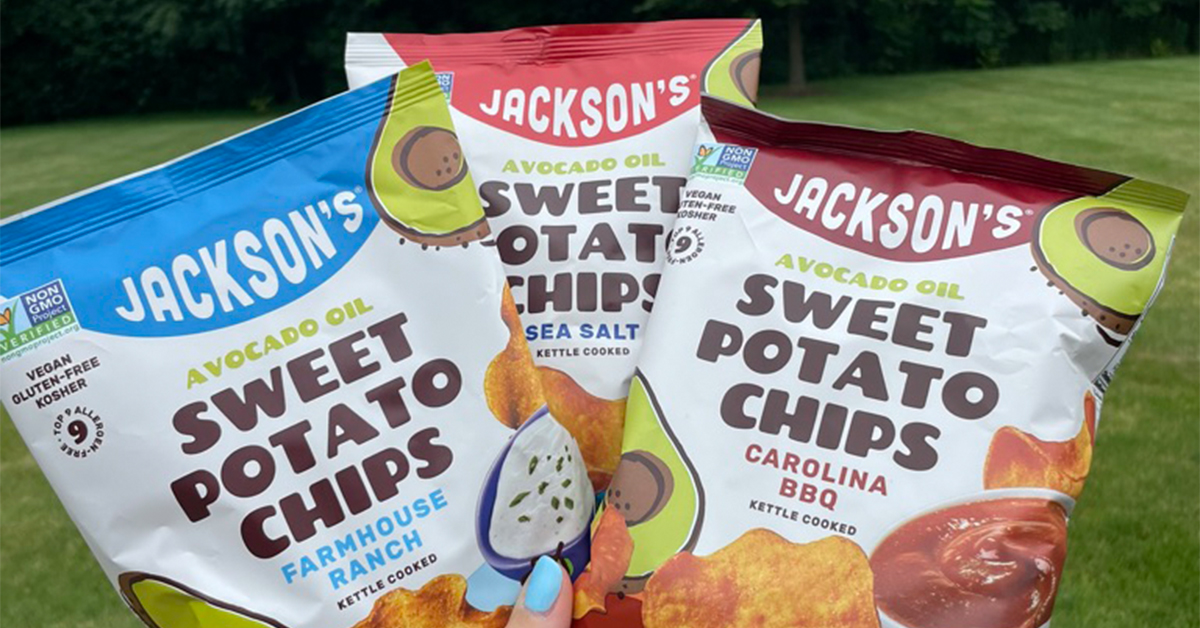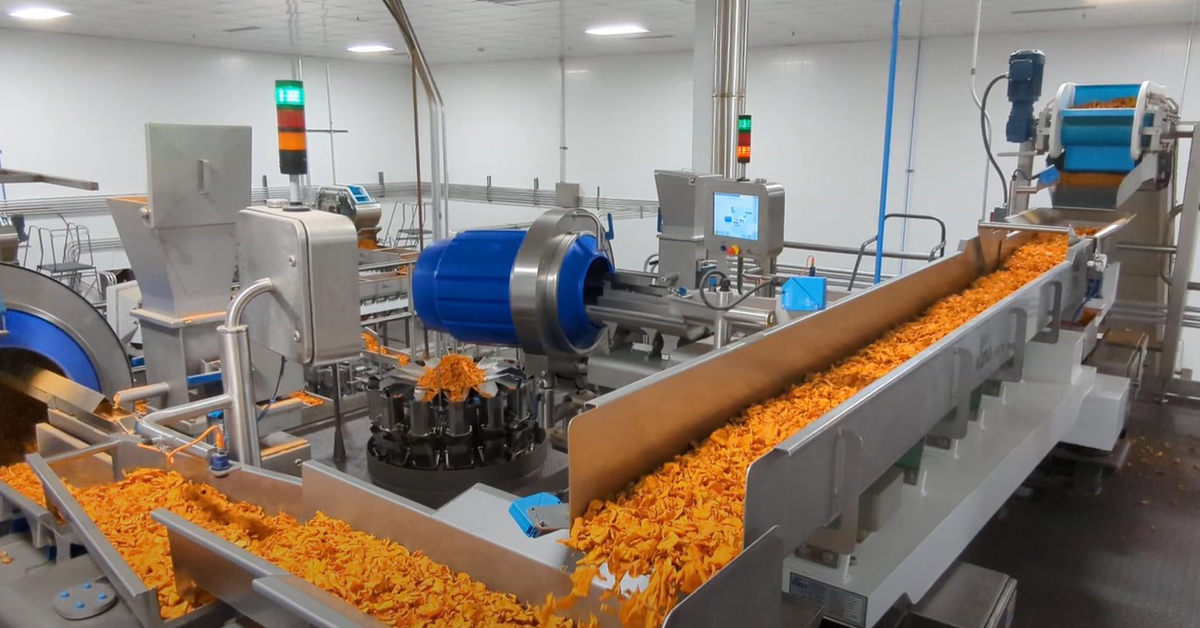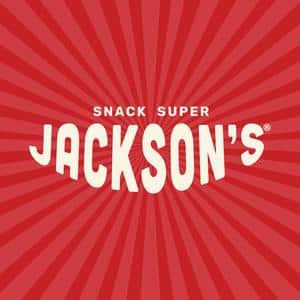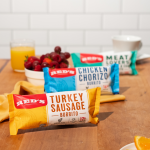Hot Potato: Inside Jackson’s Triple-Digit Revenue Growth and Its ‘Crusade Against Seed Oils’

Thanks to the rise of the anti-seed oil movement, avocado oil-based snacks are having a moment as of late. Jackson’s, which produces a portfolio of sweet potato and white potato kettle chips cooked in avocado oil, is seeking to capitalize on this momentum.
On the heels of 3x revenue growth in 2023, Jackson’s (formerly Jackson’s Honest) has been racking up international distribution gains and executing facility expansions to meet accelerated consumer demand.
The brand’s products recently expanded into Costco, Target, 7-Eleven, CVS and Walmart stores in the U.S. and into new markets in Korea and South America. In total, Jackson’s is available in over 10,000 retailers worldwide.
Additionally, the brand has established itself as the top-selling item in the salty snack category at Costco stores nationwide and ranked number 10 out of 5,500 products in the chips and crisps category on Amazon, according to president and CEO James Marino. Traditional retail, including the club and mass channels, makes up approximately 80% of the brand’s total sales, while the other 20% comes from foodservice, ecommerce, c-stores and drugstores.
“We get an equal amount of selling space; we’re on equal footing to all of the other brands that are in those retailers. In Costco, a pallet is a pallet is a pallet. And when we’re on equal footing with the big guys, we can hold our own,” said Marino.
Jackson’s was founded by husband-and-wife duo Scott and Megan Reamer in 2012. The pair set out to create snack food that didn’t ignite the inflammatory response in their son Jackson’s immune system, and they believed seed oil was one of the ingredients causing issues.
According to Marino – who joined the company in 2021 – the Reamers grew the brand “tremendously” between 2012 and 2020, even landing placement in Whole Foods Market. In 2017, the brand appeared on “Shark Tank” and struck a deal with guest shark Rohan Oza for $1.25 million in exchange for 15% equity.
“Megan and Scott are the original crusaders and pioneers in this crusade against seed oil, going all the way back to when seed oil wasn’t a coined phrase and the education that exists around it today wasn’t there,” said Marino.
However, he claims, Jackson’s growth was limited by the fact it didn’t manufacture its own products.

A New Path Forward
In 2022, an investor group from the Milwaukee, Wis., area acquired the assets of both Jackson’s and an “orphaned” state-of-the-art kettle chip facility in the Chicago area for an undisclosed amount. The company then relocated nearly 30 truckloads of equipment to its newly constructed plant in Muskego, Wis.
Marino called the deal “a perfect merger,” as there was a huge demand for the brand’s products, but it is difficult to grow a specialized product without controlling your own manufacturing. Just 18 months after moving into the new manufacturing plant, Jackson’s executed an $8 million, 10,000 sq. ft. expansion as it had quickly run up against capacity.
When the brand relaunched, it chose to focus solely on its flagship sweet potato chips cooked in avocado oil, later expanding into white potato chips. This shift led to the discontinuation of products in adjacent categories, including grain-free puffs, tortilla chips and purple potato chips.
The decisions to focus on sweet potato chips alone and to switch to in-house manufacturing have proven fruitful: the company has achieved profitability, though it declined to disclose last year’s revenue. This year, Jackson’s revenues are projected to triple.
According to Circana data tracking total U.S. sales in natural, MULO and convenience, the potato chip category is seeing healthy growth. In the 52-week period ended July 14, the category grew 4.3% to $11.2 billion.
What’s more, major players in the category like Kettle Brand and Utz-owned Boulder Canyon have also launched avocado oil-based potato chips. Mintel data found that product launches featuring “made with avocado oil claims” surged by 825% between 2019 and 2023. However, the alternatives still represent a small percentage of overall launches, Mintel analyst Julia Mills previously told Nosh.
Jackson’s believes its key differentiating factor is its expertise in handling sweet potatoes.
“Anybody who’s tried [making sweet potato chips] in the past has generally underperformed. I think the reason for that is white kettle chip operations may dip their toes into sweet potato chips, but it’s a tougher product to make and there are extra steps involved,” said Marino.
Although Jackson’s products ring up at $4.49 per 5 oz. bag and $6 per club-sized, 16 oz. bag, the brand is confident health-conscious consumers are willing to pay a premium for better-for-you, non-GMO snacks. Marino compared the trade-up to the now-familiar trade-up option of sweet potato french fries in foodservice outlets.
What’s Next?
Looking ahead, Jackson’s is set to complete a small expansion project in September that will give the brand nearly 20% additional capacity. In July 2025, the company will execute another, much larger expansion that will more than triple its capacity, giving it ample room to grow.
From an innovation standpoint, Jackson’s expects to introduce an additional (undisclosed) snacking platform by the end of 2025. When considering future product launches, Marino said the brand is “very disciplined” in what it brings to market and seeks to maintain a leadership position in avocado oil-based snacks.
He added that Jackson’s innovation approach is different from big CPG companies in that it’s not data-based. Rather, the brand tests out flavor ideas from its employees.
“Once we come up with final product concepts that we think are ready for market, we will comp them against everything out there that we thought was the gold standard to ensure what we’re putting out there is a better version. And if it’s not, we’ll go back to the drawing board,” said Marino.

















